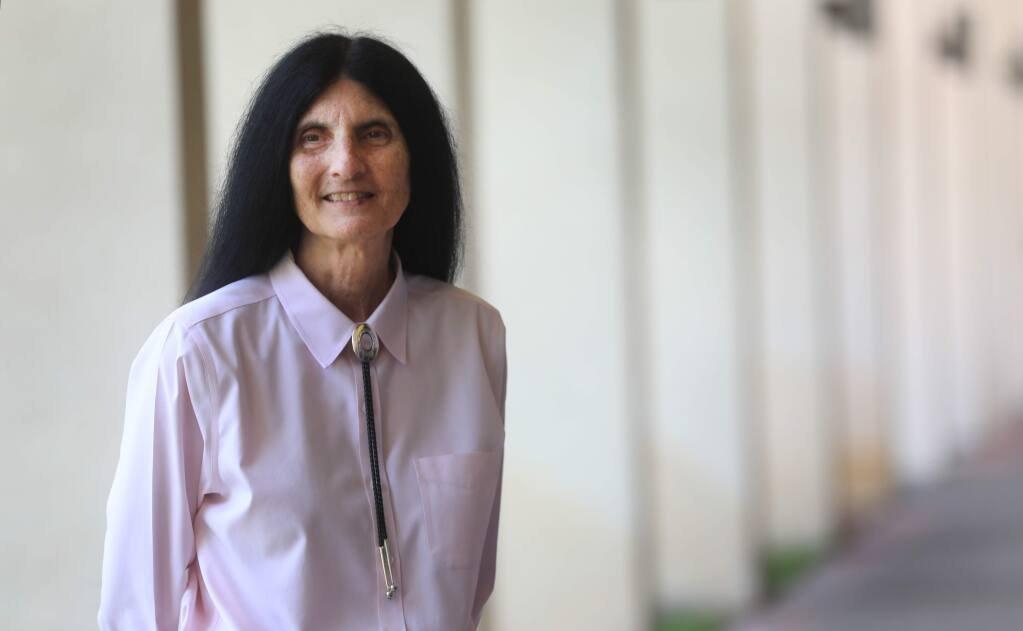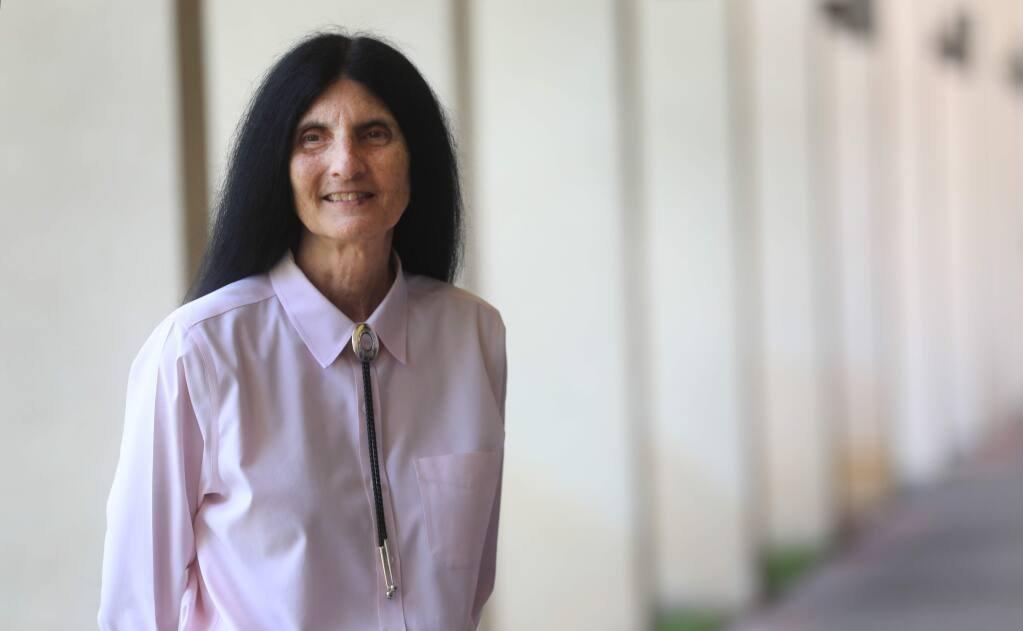Last Fri., the Hub Cultural Center hosted a guest presentation with Dr. Brenda Flyswithhawks for Native American Heritage Month. “Two worlds: surviving colonialism, racism, and western education with Dr. Brenda Flyswithhawks,” detailed the many different obstacles she endured on her journey ‘off the rez’ through the halls of western society, the military, and academia.
Acting Chair of the Native American Studies at Sonoma State, Dr. Janet Hess and Professor Mary Churchill from Santa Rosa Junior College hosted the event. Dr. Flyswithhawks began her presentation by sharing her own personal history and the history of her people.
Dr. Flyswithhawks is a citizen of the Tsalági Eastern Cherokee Nation, Qualla Boundary Reservation, Cherokee, North Carolina. Dr. Flyswithhawks’ ancestors were of the many native people who decided to hide while thousands of others were being forcibly relocated to reservations in Oklahoma. Those who remained became known as the Eastern Band of Cherokee Indians.
She currently lives in Santa Rosa within the local Graton Rancheria community, a federated tribe of Coast Miwok, Southern Pomo and Wapo peoples. “This home means a lot to me, I used to walk there with my grandfather. We would go down to this stream and go fishing.” said Dr. Flyswithhawks while recounting a memory of her grandfather. She said that they would take an offering every time and as she describes it, her grandfather would lower his hands into the water and fish would swim into his hands.
When Dr. Flyswithhawks turned 18 in 1968, she attended a college info night, where a recruiter for the military was present and giving out information on enlistment. Unlike her older sister, Dr. Flyswithhawks didn’t have any aspirations for college. Much to her own surprise, she then enlisted that night.
“Long story short, I went over and this recruiter told me all the things I could do and be trained in, and that sounded great to me,” said Dr. Flyswithhawks about her experience with enlisting in the military. She described the experience as a “cultural difference” compared to her upbringing in terms of hierarchy and the necessity to cut her hair.
The global context of Dr. Flyswithhawks enlistment was the beginning of the Vietnam War, where she joined as a medical technician. She would fly in helicopters with medical rescue to air lift troops out that were in need of medical attention.
Dr. Flyswithhawks also noted that her time in the military was also overshadowed by the racism and prejudice she would experience once back home. “I remember one time in particular, I was in uniform and I was waiting for my flight home to Tennessee. I came out of the women’s restroom and this person came up to me, said some ‘not so nice things’ and then spit on me. I did not understand that because I thought what I was doing was really honorable,” recalled Dr. Flyswithhawks.
After her time with the military, Dr. Flyswithhawks used her G.I. Bill to attend the University of San Antonio, where she came to be mentored by future Congresswoman Barbara Jordan. The two met on campus when Congresswoman Jordan helped Dr. Flyswithhawks navigate her way to class. “I didn’t even know who she was then.” said Dr. Flyswithhawks on her first meeting with Congresswoman Jordan.
“[Jordan] said that she wanted me to come and see her anytime I needed anything, and I went to her office often. She fed me, she mentored me, and she encouraged me. She helped me to dream and understand that there are things that are possible and great things that an educated native person could do.” Said Dr. Flyswithhawks on her relationship to the future Texas Congresswoman.
After her time in San Antonio, Dr. Flyswithhawks continued on to graduate school at Sonoma State University where she graduated with a Masters in Psychology. She notes that her experience at SSU was pleasant, but was yet another cultural difference. Ultimately, she decided to choose SSU due to the indigenous population in the Graton Rancheria Community. “My grandmother said that wherever you go, make sure you go into a community where there are native people because you will always be taken care of and looked after.” said Dr. Flyswithhawks.
Events like this one are important, as you are able to hear stories from somebody’s life that you might not have otherwise heard. Dr. Flyswithhawks’ story is one of few exclusive events that will be offered to students during Native American Heritage Month. On Wed., Nov. 17, inspired Natives will be presenting an event exploring Native American stereotypes, and the closing ceremony for the month will follow on Tues., Nov. 30.
COURTESY // Seawolf Living
Dr. Brenda Flyswithhawks visits Sonoma State via Zoom to share her story in honor of Native American Heritage Month.





































